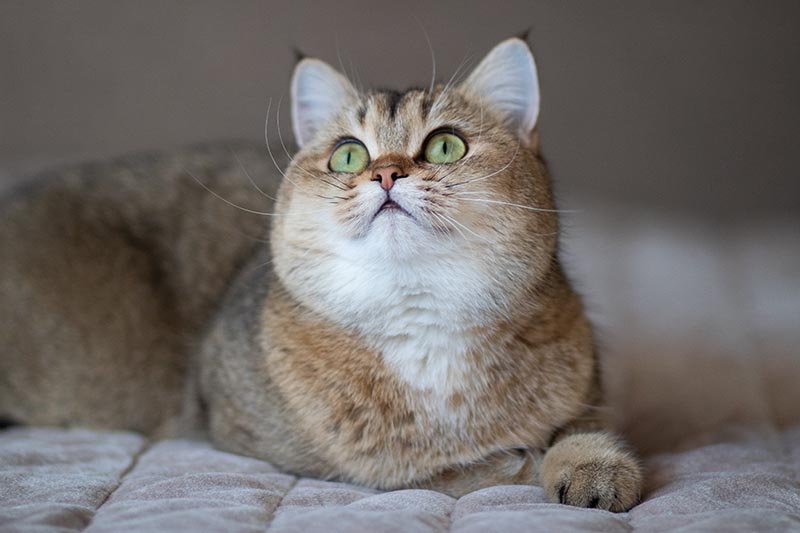Introduction:
With its plush coat, round face, and dignified demeanor, the British Shorthair cat is a breed that exudes charm, grace, and sophistication. Renowned for its gentle nature and affectionate disposition, the British Shorthair has earned its place as one of the most beloved feline companions worldwide. In this comprehensive guide, we’ll explore the joys of welcoming a British Shorthair into your home, from their origins and distinctive characteristics to their care requirements and suitability as pets.
Origins and History:
The British Shorthair’s history can be traced back centuries to ancient Britain, where it was prized for its excellent hunting skills and robust physique. Originally known as the British Blue due to its distinctive blue-gray coat, this breed has since been selectively bred for specific traits, resulting in a variety of coat colors and patterns.
During the late 19th century, the British Shorthair faced a decline in popularity, but dedicated breeders worked to preserve its unique characteristics, leading to a resurgence in the breed’s popularity in the mid-20th century. Today, the British Shorthair is recognized by cat enthusiasts worldwide for its beauty, temperament, and adaptability.
Characteristics and Appearance:
The British Shorthair is known for its round, chubby face, short muzzle, and large, expressive eyes, which give it a sweet and endearing expression. These cats have a sturdy, muscular build and a dense, plush coat that comes in a wide range of colors and patterns, including blue, black, cream, silver, and tabby.
One of the British Shorthair’s most distinguishing features is its dense, plush coat, which requires minimal grooming compared to some other long-haired breeds. A weekly brush to remove loose fur and prevent matting is usually sufficient to keep their coat in good condition.
Temperament and Personality:
British Shorthairs are renowned for their calm, gentle, and laid-back demeanor. They are affectionate, loyal, and enjoy spending time with their human companions, although they are not typically demanding or clingy. British Shorthairs are independent by nature and are content to entertain themselves when their owners are busy.
These cats are known for their adaptability and get along well with children, other pets, and even cat-friendly dogs. While they may not be as vocal as some other breeds, British Shorthairs are excellent communicators and will often express themselves through soft purring and chirping sounds.
Care and Maintenance:
Caring for a British Shorthair is relatively straightforward, thanks to their low-maintenance coat and easygoing nature. Here are some essential care tips for keeping your British Shorthair healthy and happy:
- Nutrition: Provide a balanced diet of high-quality cat food formulated for their age, size, and activity level. Avoid overfeeding, as British Shorthairs have a tendency to gain weight if allowed to overeat.
- Grooming: Brush your British Shorthair’s coat weekly to remove loose fur and prevent matting. Trim their nails regularly and clean their ears as needed to prevent wax buildup and infection.
- Exercise: While British Shorthairs are not as active as some other breeds, they still benefit from regular exercise and playtime. Provide interactive toys, scratching posts, and opportunities for indoor exploration to keep them mentally and physically stimulated.
- Healthcare: Schedule regular veterinary check-ups to monitor your cat’s health and address any medical concerns promptly. British Shorthairs are generally healthy cats but may be prone to certain genetic conditions, such as hypertrophic cardiomyopathy (HCM) and polycystic kidney disease (PKD).
- Environment: Create a safe and comfortable environment for your British Shorthair with plenty of cozy spots for lounging and resting. Provide access to fresh water, litter boxes, and scratching posts in different areas of your home.
Suitability as Pets:
British Shorthairs are excellent pets for individuals and families alike, thanks to their calm, gentle nature and adaptability to various living situations. Whether you live in a small apartment or a spacious house, a British Shorthair can thrive as long as they receive proper care, attention, and love.
These cats are well-suited to indoor living and do not require access to the outdoors, making them ideal companions for urban dwellers or those concerned about their cat’s safety. However, they still benefit from supervised outdoor time in a secure enclosure or on a leash and harness.
Conclusion:
In conclusion, the British Shorthair is a delightful and affectionate companion that brings joy and warmth to any household. With its regal appearance, sweet temperament, and low-maintenance care requirements, this breed has captured the hearts of cat lovers around the world.
Whether you’re drawn to their striking looks, gentle demeanor, or easygoing personality, a British Shorthair can make a wonderful addition to your family. By providing love, care, and attention, you can enjoy many happy years of companionship with your British Shorthair as they enrich your life with their presence and charm.

